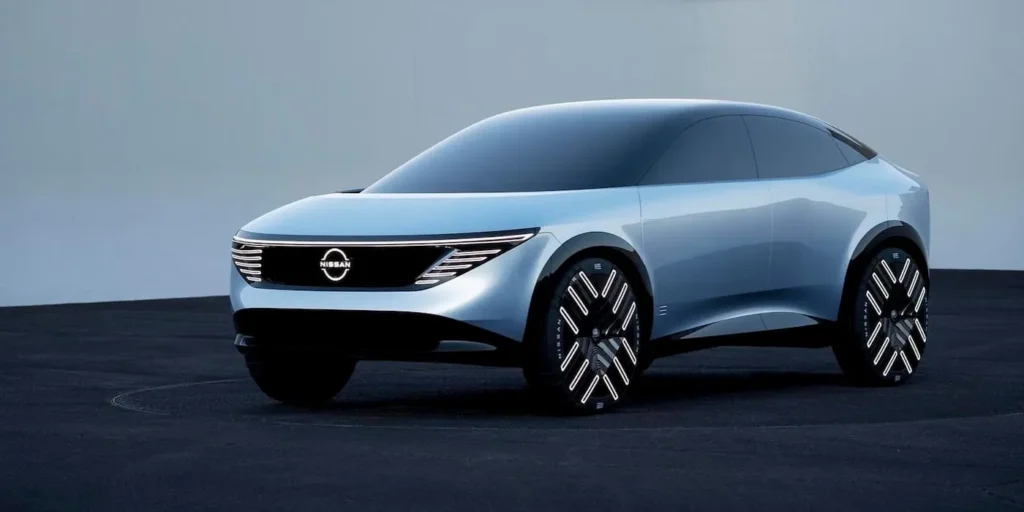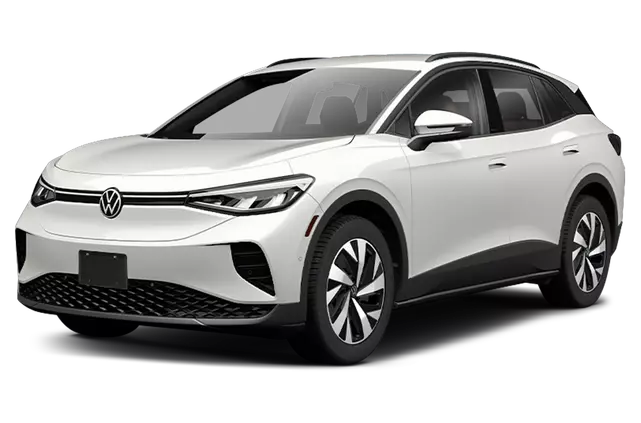Nissan, a pioneer in the electric vehicle (EV) market, is set to unveil its next-generation LEAF EV in 2024. As the compact EV that kickstarted the electric revolution, the LEAF is getting a much-anticipated makeover to stay competitive in an increasingly crowded market. With the company’s commitment to an all-electric future, Nissan is investing £3 billion ($3.8 billion) to build three new EVs at its Sunderland factory in the UK.
Featured Image Courtesy of electrek
The Road to Electrification: Nissan’s Strategic Transition
In September, Nissan’s announcement to cease the production of internal combustion engine (ICE) vehicles in Europe underscores a strategic shift towards a fully electric future. With sweeping plans for electrification, the recent revelation of a £3 billion ($3.8 billion) investment to manufacture three new EVs at its Sunderland factory solidifies Nissan’s commitment to being a key player in the burgeoning EV market.
Among these three new EVs, the spotlight is on the next-gen LEAF, a compact yet influential player in the EV arena. To stay competitive and cater to changing consumer preferences, Nissan is also converting two top-selling SUVs, the Juke and the Qashqai, into all-electric models. This move reflects Nissan’s adaptability and determination to electrify its lineup comprehensively.
Designing the Future: Next-Gen LEAF’s Crossover Coupe SUV Approach
Scheduled for release in 2024, the next-gen LEAF is not just an upgrade; it’s a strategic evolution to compete with new rivals and redefine its place in the market. Nissan transformed the LEAF into a crossover coupe SUV, recognizing the need for a significant revamp. This design overhaul aims to avoid internal competition with the electric Juke and Qashqai while aligning with the preferences of modern EV enthusiasts.
Drawing inspiration from the success of its first electric SUV, the Ariya, Nissan’s design language for the next-gen LEAF leans towards the sleek and contemporary, as previewed in the Chill-Out concept. This move represents a departure from the design features of the first two LEAF generations, ensuring a fresh and appealing aesthetic.
Powering Tomorrow: Gen5 Batteries and Extended Range:
Central to the next-gen LEAF’s prowess is its power source – the Gen5 batteries. Sourced from Nissan’s cutting-edge cell plant, which is currently under construction, these batteries boast a 30% increase in energy density compared to the current LEAF’s 62 kWh pack. This technological leap translates into a remarkable range of 239 miles (385 km), placing the LEAF in direct competition with formidable rivals like VW’s ID.3.
Addressing two critical concerns for EV owners – range anxiety and charging infrastructure – the next-gen LEAF is set to redefine benchmarks for electric vehicle performance and usability. As the world witnesses a surge in EV adoption, Nissan’s commitment to advanced battery technology positions the LEAF as a frontrunner in the quest for sustainable and practical electric mobility.
Market Dynamics: Navigating Challenges and Seizing Opportunities:
While the LEAF has been a pioneering force in the EV market since its debut in 2010, the last 13 years have witnessed a dynamic shift. New competitors, particularly from China, have entered the scene, offering more advanced electric models with longer ranges and enhanced features. Research from Dataforce reveals a 31% decline in LEAF sales through October in Europe, prompting Nissan to respond with a substantial upgrade.
Chinese rivals like BYD and SAIC’s MG have gained significant ground, with SAIC selling an impressive 52,520 MG4 electric models in Europe during the same period. The emergence of electric sedans like BYD’s SEAL and SEAL U designed for European buyers further intensifies the competition. In response, Nissan strategically positions the next-gen LEAF as a crossover coupe SUV to secure its foothold in the European market, sidestepping competition with its own Juke and Qashqai.
Design & Interior: A Familiar Yet Timeless Appearance
Since its recent mid-cycle refresh, the 2024 Nissan Leaf retains the exterior changes introduced in 2022. These include a new closed grille, an illuminated Nissan logo, and updated headlights with a sleek black finish. The addition of more aerodynamic features, such as tire deflectors, a rear under diffuser, and a rear spoiler, further enhance the Leaf’s efficiency. Notably, the sporty appearance is accentuated by the new 17-inch five-spoke alloy wheels.
Inside the Leaf, the design remains unchanged from the previous model year. While it offers ample space and practicality, some may find the interior starting to show its age compared to competitors with advanced digital features, connectivity, and materials. However, the Leaf’s interior still provides comfort and convenience, making it an ideal choice for daily city commutes.
Specifications: Power and Efficiency Unleashed
The 2024 Nissan Leaf offers two battery pack options: 40 kWh and 60 kWh. The standard-range variant features a low-output motor producing 147 hp and 236 lb.-ft. Of torque, with an EPA-estimated range of 149 miles.
On the other hand, the extended-range variant boasts a high-output motor generating 214 hp and 250 lb.-ft. Of torque, delivering an EPA-estimated range of 212 miles. Both variants support fast charging, with the extended-range variant allowing charging up to 100 kW.
Features: Safety and Convenience at Your Fingertips
The 2024 Nissan Leaf is available in the U.S. market in two grades, the S and SV Plus. Standard features include an 8-inch touchscreen infotainment system, automatic climate control, a 60/40 split rear seat for added versatility, automatic headlights, and Nissan Safety Shield 360, a suite of safety technologies designed to protect you on the road. The Leaf also offers a Rear Door Alert, ensuring you never forget anything in the backseat.
The SV Plus grade has additional features such as LED headlights, LED daytime running lights (DRLs), 17-inch alloy wheels, an 8-way electrically adjustable driver’s seat with 2-way lumbar support, and a Nissan Door to Door Navigation. In terms of safety, the SV Plus grade includes ProPILOT Assist, a 360-degree camera system, steering assist, Intelligent Cruise Control with Full Speed Range and Hold, and Intelligent Driver Alertness.
Release Date and Pricing: Affordable Electric Mobility
The 2024 Nissan Leaf is now available for purchase in the U.S. market. The S variant starts at USD $28,140, while the SV Plus variant is priced at USD $36,190. It’s worth noting that the 2024 Leaf may qualify for a federal tax credit of USD $3,750 until December 31, 2023, making it an even more affordable option for eco-conscious consumers.
The Future of the Nissan Leaf: A Crossover Revolution
As the automotive industry shifts towards electric mobility, Nissan recognizes the need to adapt and innovate. The Nissan Leaf, once a trailblazer in the EV market, has faced challenges recently due to increased competition and evolving consumer preferences.
To address these challenges and better cater to the needs of EV buyers, Nissan plans to launch a successor to the Leaf. Automotive News reports that Nissan is developing an electric SUV coupe inspired by the Nissan Chill-Out concept. This new model aims to offer improved features, range, and design, positioning itself as a viable alternative to next-generation EVs. Dealers who have been given a sneak peek of the upcoming Leaf successor describe it as a “mini Ariya” with an increased range of approximately 265 miles.
Furthermore, Nissan’s commitment to the future of electric mobility is evident in its plans to produce a new EV crossover at its UK plant in Sunderland starting in 2025. This crossover EV is expected to replace the Leaf and promises to be a game-changer for Nissan, offering a blend of affordability, advanced features, and a design that aligns with the growing demand for crossover vehicles.


